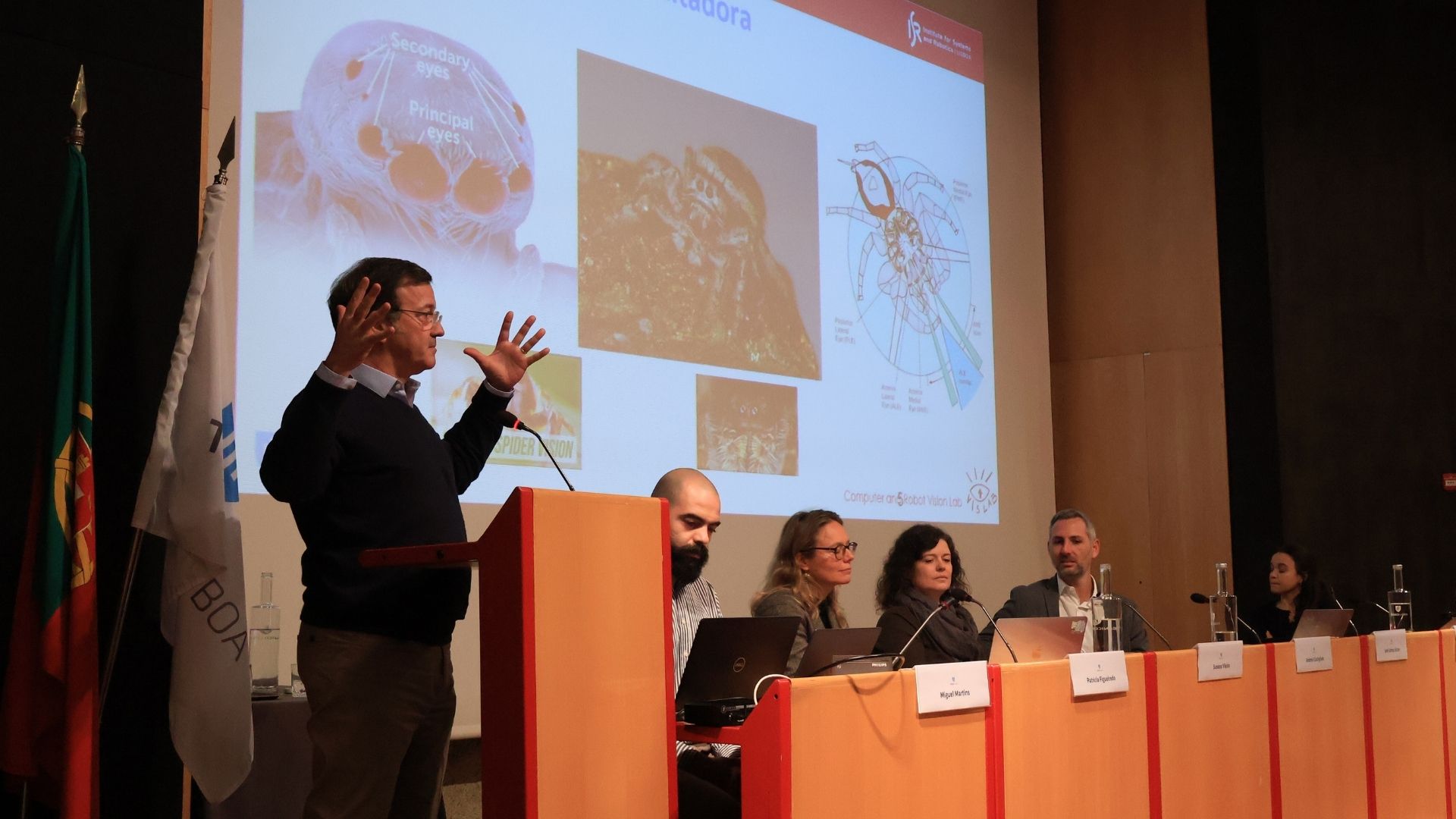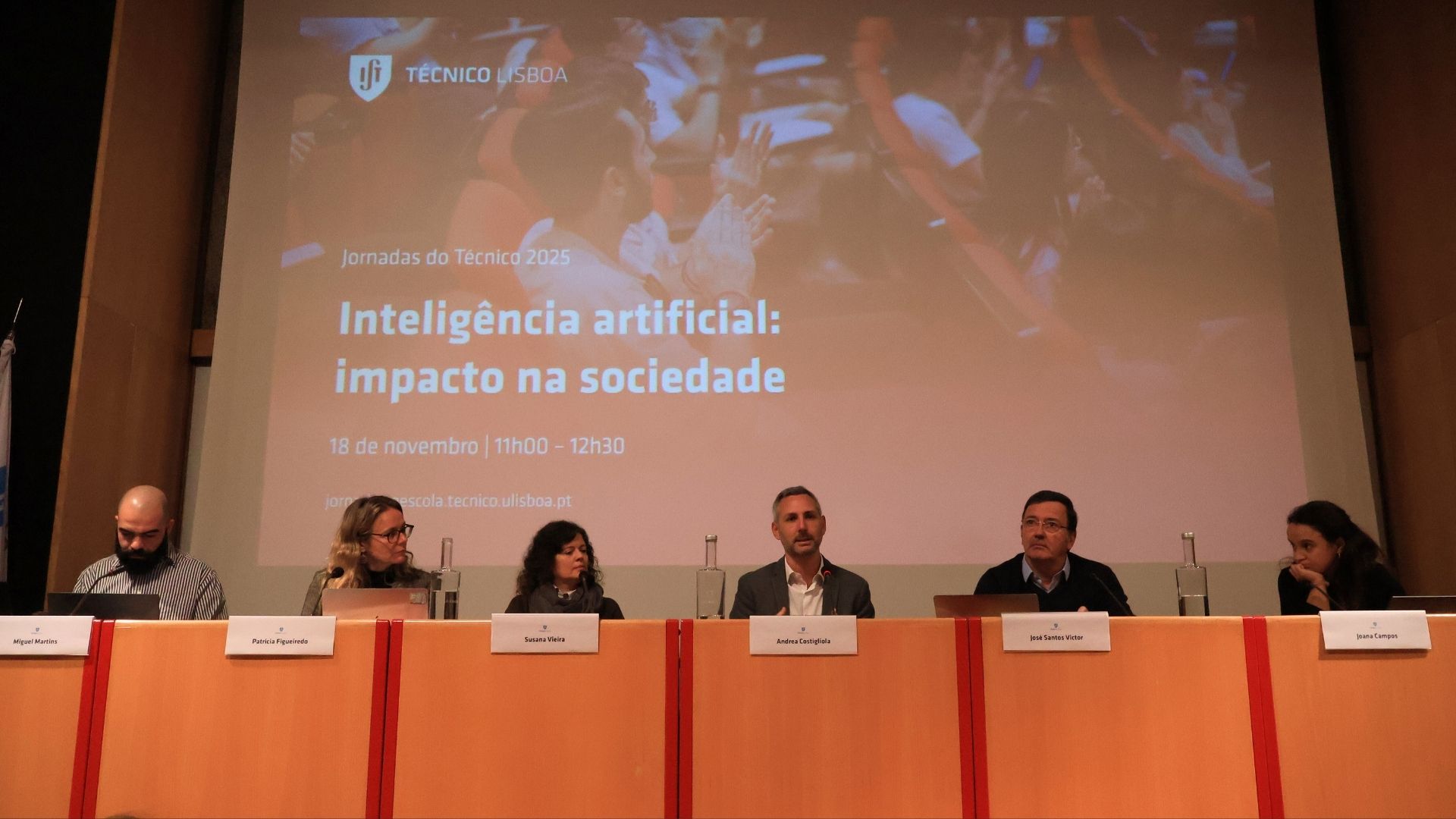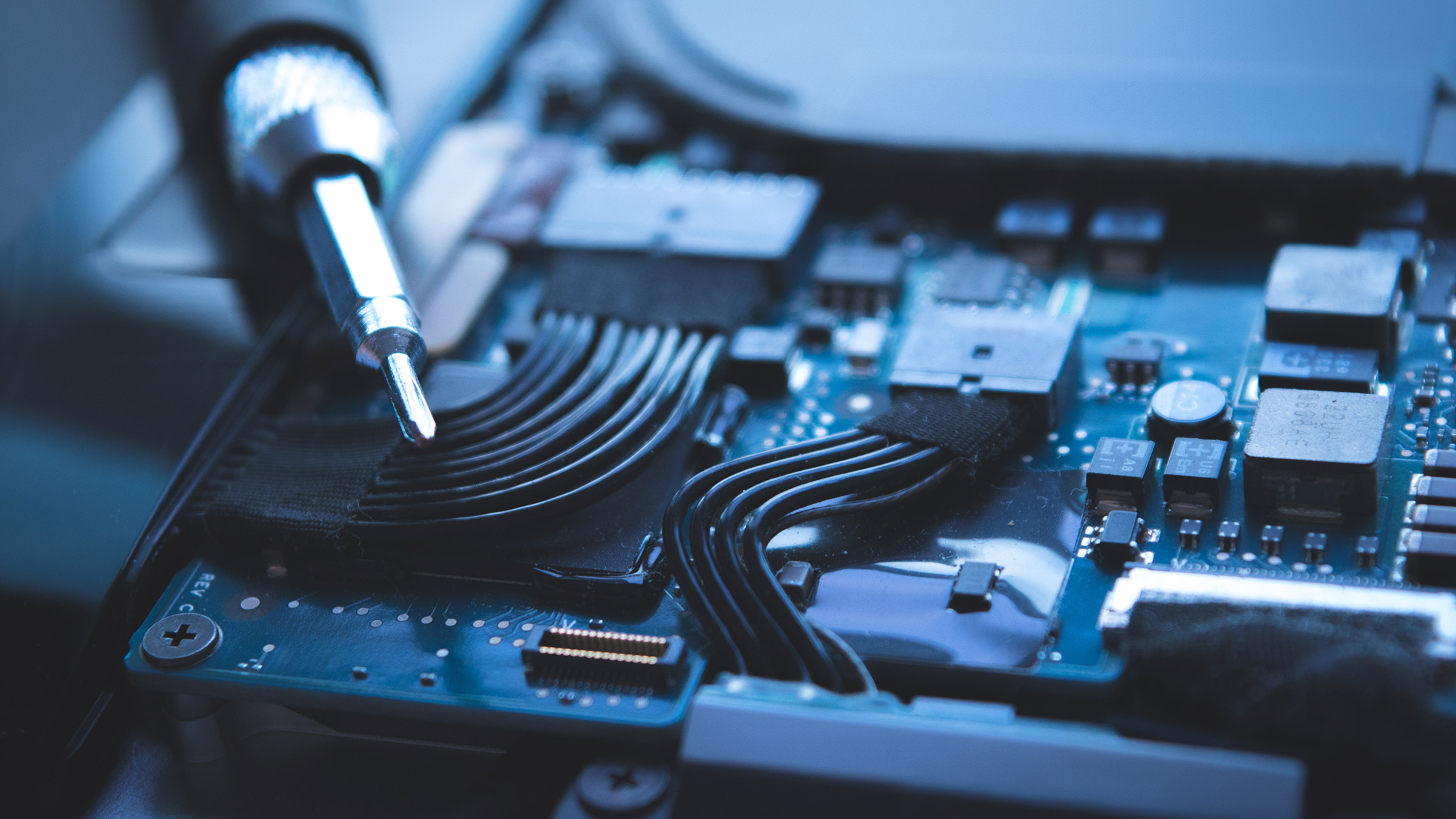Jornadas do Técnico 2025 - Inteligência Artificial: Impacto na Sociedade

After the session “Artificial Intelligence in Research and Teaching”, the panel “Artificial Intelligence: Impact on Society” took place, featuring José Santos-Victor, professor at the Department of Electrical and Computer Engineering (DEEC) and researcher at the Institute for Systems and Robotics (ISR); Susana Vieira and Joana Campos, both professors at Técnico; and Andrea Costigliola, leader of Global IT Analytics. The discussion was moderated by Patrícia Figueiredo, professor at Técnico.
The panel began with a brief presentation from each speaker, focused on their personal views on the topic.
José Santos-Victor started by highlighting the growing presence of artificial intelligence in different areas of society, and the numerous possibilities for its use — something that impacts research, the economy, employability, democracy, and issues related to ethics, literacy, mental health, among others.
I believe that one of the most important challenges in the coming years — or these years we are already living through — is the much closer connection between artificial intelligence and the physical world.
José Santos-Victor, professor at DEEC and researcher at ISR
In terms of research, the professor emphasized the development of interaction between AI mechanisms and the physical environment that surrounds them, drawing a parallel with biological evolution, particularly with regard to the nervous system throughout history. He discussed the use of robots to better understand what it means to be “human”, by collecting behavioral data and attempting mathematical and computational modeling of such behavior. In this context, he mentioned the iCub, a humanoid robot whose purpose is to replicate the process of human learning up to two years of age, contributing to the study of the brain in early childhood. Researchers are also studying interactions among adults, in order to understand non-verbal communication — something that may also be applied in robotics.
José Santos-Victor also addressed the biology of the jumping spider, which has complex but energy-efficient systems, both visually and neurologically.

Regarding inclusion in society, the researcher mentioned ongoing studies on the use of robotics and artificial intelligence for therapy with children on the autism spectrum, as well as for understanding the brain’s memory mechanisms and the cognitive issues associated with them. Finally, he presented the project Reconstructing the Past: Artificial Intelligence and Robotics Meet Cultural Heritage, which aims to assist in reconstructing the frescoes of Pompeii from their fragments, using robotic systems.
After the presentations, questions were posed by both the moderator and the audience. In response to the question “How will it be possible to foster critical thinking in education?”, José Santos-Victor highlighted the importance of considering all academic levels, starting from primary school, including the role of teachers. He stressed that, alongside the significant changes among young people — who increasingly use AI tools — there is a growing need to guide them toward proper and responsible use. Regarding employability, he emphasized the importance of investing in young people’s training for the future.

Throughout the debate, the researcher also underlined that, especially since the pandemic, there has been a growing tendency toward reduced human interaction, which in some cases has been replaced by interaction with machines. This scenario raises ethical concerns and impacts mental health, making it necessary to reflect on the increasing search for AI-powered psychological support tools — something that still requires proper professional validation.
Regarding the labor market, José Santos-Victor pointed out that automation brings benefits such as cost reduction and production process optimization across different industrial sectors, including agriculture. He also noted that these developments present an opportunity to reduce working hours, contributing to improved living conditions for the population.
